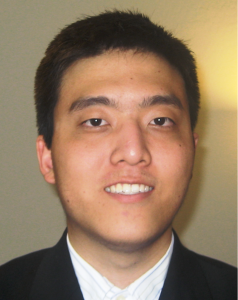Five recent graduates of Arizona State University’s Ira A. Fulton Schools of Engineering and two current ASU engineering graduate students have been awarded National Science Foundation (NSF) Graduate Research Fellowships to support their pursuit of advanced degrees.
The competitive fellowship program aids graduate students studying science, engineering, technology and mathematics who are judged to have the potential to be future research, teaching and innovation leaders in those fields.
The NSF views the skills and creativity of fellowship awardees as “crucial to maintaining and advancing the nation’s technological infrastructure and national security as well as contributing to the economic well-being” of the country.
The award, considered one of the most prestigious graduate research fellowships in the country, brings each student a three-year annual stipend of $30,000, plus allowances for tuition and fees.
“This is an achievement that clearly reflects the excellence and competitiveness of our students at the national level,” says ASU associate engineering professor Lenore Dai, who is chair of the chemical engineering program.
Dai has been the adviser to the three ASU chemical engineering students who won 2012 NSF fellowships.
“To see our students winning these awards speaks well not only of their dedication and creativity, but also reflects well on the faculty members who mentor these students,” says Kyle Squires, director of the School for Engineering of Matter, Transport and Energy. “The research experiences provided by the faculty are often instrumental in shaping the ideas that turn into winning fellowship applications.”
Edward Lee, an electrical engineering graduate, was one of seven fellowship recipients.
 Edward Lee
Edward Lee
Lee graduated from ASU in May, as a Barrett honors college student, with a bachelor’s degree in electrical engineering. He’ll use his NSF fellowship to pursue a doctoral degree in the field at Stanford University.
During his four years at ASU he held a student-worker position as a research assistant at the Flexible Display Center at the ASU Research Park, participating in several key projects pursuing advances in flexible electronics and related technologies.
Some of that work led to Lee sharing in the award of patent for a new advance in dual-stage active pixel devices, which are key components of modern cameras and other photographic technologies.
He co-authored two articles published in major research journals and helped develop a research presentation given at the International Flexible Technology Conference of the Institute of Electrical and Electronics Engineers.
He won a national Goldwater Scholar Award and an Arizona Governor’s Innovator Award, was a finalist in a National Junior Science and Humanities Symposium competition and took a second-place award in an International Science and Engineering in Computer Science competition.
He also won the top award earlier this year for the electrical engineering senior-year capstone design project.
Lee says he was able to do research that delved into course subjects that he found the most interesting—including digital and analog circuitry, signal processing, electromagnetic, solar energy and photovoltaic systems engineering.
At Stanford he’s hoping to focus on, among other things, development of nanoscale integrated electronic circuits that will be able to travel through the bloodstream to deliver medicinal drugs into the body to destroy cancer cells and remove plaque near the heart.